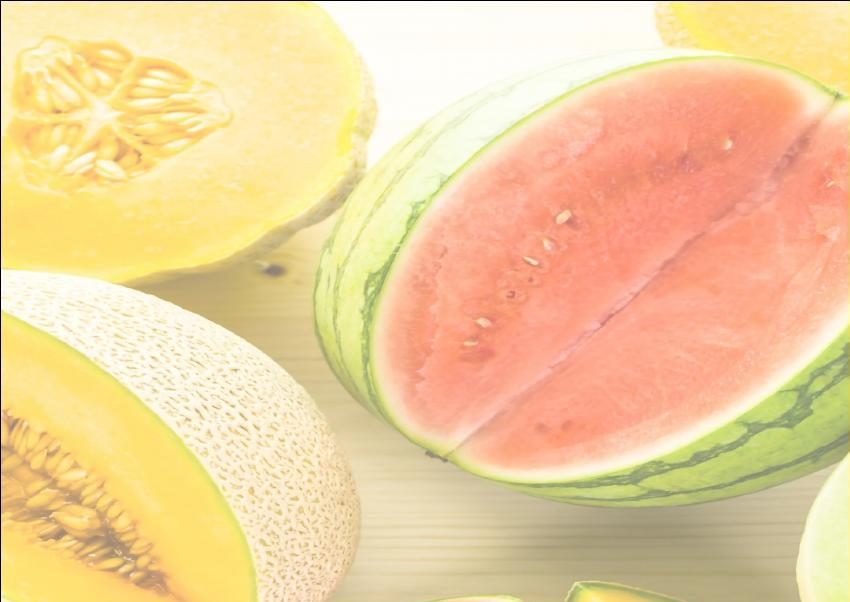
Let’s be honest, who doesn’t love a juicy slice of melon on a hot summer day? They’re not only delicious but are actually undersold nutritional powerhouses. These vibrant, juicy fruits have been considered precious gems on the tables of nobles worldwide even from ancient times, and it’s easy to see why. They are sweet, tasty, and offer incredible health benefits for anyone pursuing a balanced diet and wellness-focused lifestyle.
A Brief History of Melons
Melons have a rich history that dates back thousands of years. Originating in the warm regions of Africa and Southwest Asia, they quickly became prized for their refreshing qualities and sweet taste. Ancient Egyptians cultivated melons as early as 2000 BCE, as evidenced by their tasty depictions in tomb artwork. From North Africa, they moved along major trade routes into Europe, and then to North America through Spanish explorers in the 16th century. During this time, farmers began experimenting with many varieties, eventually becoming the ones we know and love today.
In modern times, melons have become popular for snacking fruits. Cantaloupe, honeydew, and watermelon are summer staples, celebrated for their hydrating properties and bright flavors.
Nutritional Benefits of Melons
Melons are a nutritional treasure trove. They are a superfood, and now you can see why:
- Rich in Vitamins and Antioxidants: Melons are packed with nutritional goodies, like vitamin C, which supports the immune system, and vitamin A, which promotes healthy skin and vision. They are also packed with antioxidants that reduce inflammation.
- Hydration Heroes: With a water content often exceeding 90%, melons are naturally one of the most hydrating fruits in existence. They’re a delicious way to replenish fluids, especially on a hot summer day. You can forget sugary sports drinks and grab a melon!
- Low-Calorie, High-Fiber Goodness: Who isn’t looking for a guilt-free treat? Most melons are both naturally sweet and low in calories, satisfying your sweet tooth without breaking healthy eating goals. And, thanks to their dietary fiber, they can also keep your digestive system happy and healthy. A win-win!
- Heart Health: Compounds like potassium and citrulline are found in abundance within melons and can help regulate blood pressure. Watermelon, in particular, has been found to enhance circulation and reduce muscle soreness after exercise.
How to Incorporate Melons into Your Diet
Now that we know how great melons are, you may be wondering how to get more of them into your everyday life. Here are some ideas we have:
- Smoothie Sensation: Blend up some cantaloupe or honeydew with yogurt, some mint, and a drizzle of honey for a spritely kick-starting breakfast smoothie.
- Salad Superstar: Add something sweet to your salads! Watermelon cubes paired with feta cheese, arugula, and a touch of balsamic glaze create a flavor explosion that always delights.
- Snack Attack: Keep it simple! Slice up some melon wedges or use a melon baller for a quick and easy snack that’s perfect for kids and adults alike. These are great for soccer games or sending your kid off to day camp prepared for the heat!
- Dessert Delight: Craving something a little cooler? You can make a healthy sorbet by freezing pureed melon. It’s a light, refreshing dessert that’s a great substitute for ice cream.
- Hydration Booster: Infuse your water with chunks of melon for a naturally flavored beverage, or whip up some fresh melon juice. This is a quick and easy way to use leftover bits of melon from a fruit platter.
Why Melons Deserve Superfood Status
The combination of hydration, nutrition, and deliciousness make melons a great superfood for all occasions. Whether you’re looking to improve your diet or for something to substitute for desserts and snack time, melons offer a great, low-calorie choice.
Visit TheMelonTester.com to discover more about the best melon varieties, recipes, and tips for selecting the juiciest fruits. Let melons be your go-to choice for your healthy lifestyle journey.

